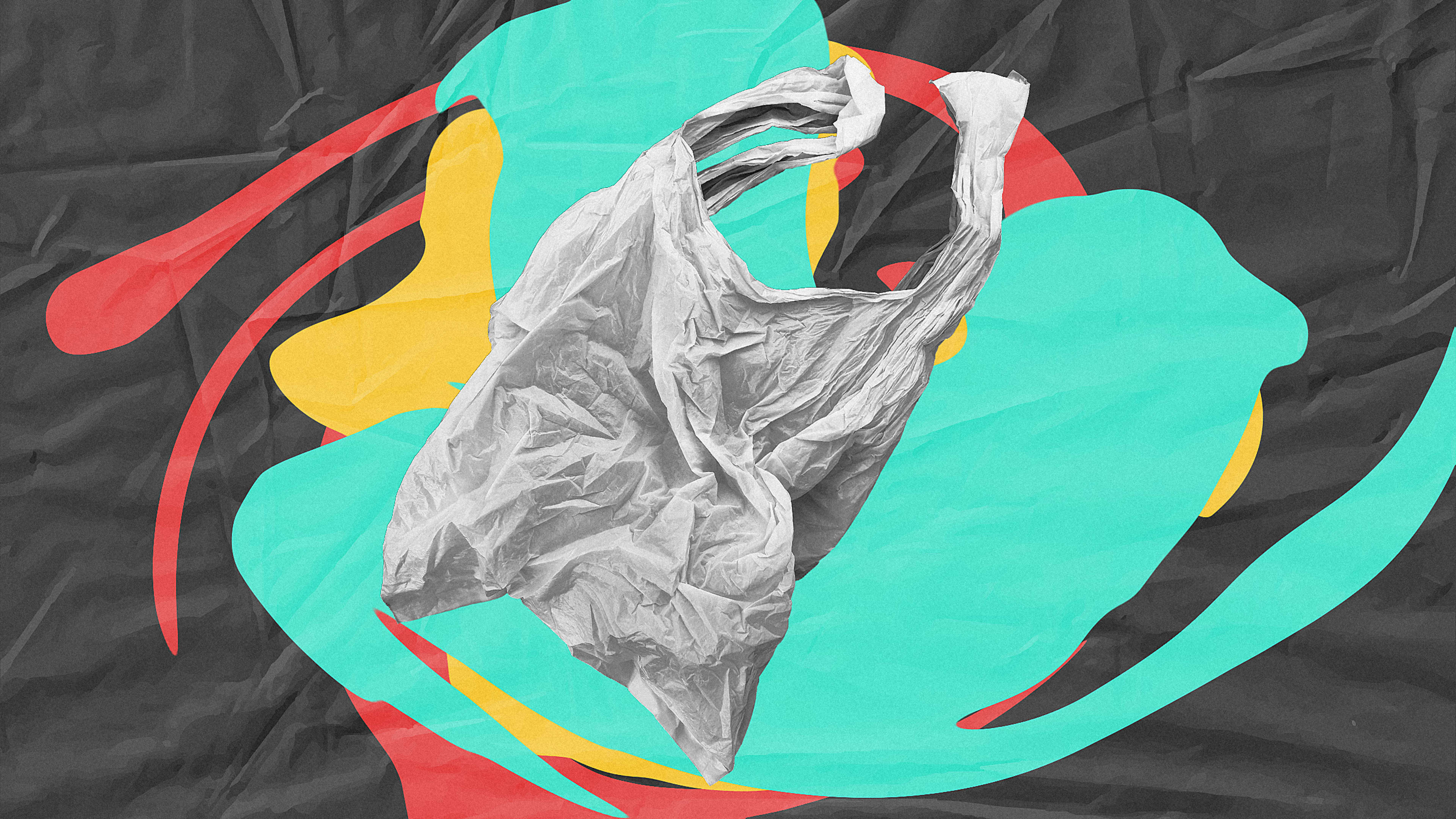As the groundswell against single-use plastic has grown, a recent study about the new coronavirus could lend more ammunition: The virus, SARS-CoV-2, can live on plastic for two to three days, versus 24 hours on cardboard. (Another study that looked at related viruses, SARS and MERS, found that some lived on plastic as long as nine days.) But the plastic industry is also using the coronavirus crisis for the opposite reason, to argue that public health requires us to overturn bans on single-use plastic bags at stores.
That push, which has come in the form of op-eds and articles arguing that plastic bags are safer, might have possibly come in direct response to the negative news in the new studies. “Based on my timeline of when that narrative started to take shape, it’s plausible that the coordinated PR machine on that could be to deflect attention away from that study,” says Ivy Schlegel, a senior research specialist at Greenpeace who studied the arguments made over the last few weeks by groups such as the Manhattan Institute, a Koch-funded group that has spent decades opposing climate action.
Of course, the industry fight against bag bans isn’t new; in California alone, groups spent millions fighting a ban on single-use bags. It successfully blocked bag bans in other states. But it’s gaining even more traction during the current health crisis, despite a lack of evidence about the threat of reusable bags. An article in the Manhattan Institute’s City Journal on March 12 claims that reusable bags can sustain COVID-19. As the article was republished in the New York Post and the same argument made elsewhere, mayors and state lawmakers started to react. Maine voted to delay its bag ban, as did New York State. New Hampshire issued an emergency order banning reusable bags. Some supermarkets started asking customers not to bring bags from home.
No one has studied, yet, whether the virus is spreading via reusable bags. But the CDC suggests that the most likely method of transmission is person-to-person contact, not contact through surfaces. For a cashier, the greatest risk may be standing near an infected shopper, not handling a bag that they’ve touched. And if surfaces are a problem, the fact that a cashier has to handle packages that a customer just picked up (and maybe inadvertently sneezed or coughed or breathed on) would also be a problem. “Touching packaging does seem to be lower risk than person-to-person contact,” says Schlegel. “But it does call into question all of the plastic packaging in stores—many things are overly wrapped in plastic because of this idea that the industry has pushed that plastic is the most sanitary thing.”
Some experts say that porous surfaces, such as cotton, may be less likely to transmit the virus than smooth surfaces such as plastic, so some reusable bags may be better than others; the virus can also be easily destroyed if a bag is washed with soap and water. One earlier study that looked at reusable bags and bacteria, not viruses, recommended washing reusable bags, not eliminating them. The study was funded by the American Chemistry Council, an industry group.
In the short term, to protect frontline workers in grocery stores, some stores are asking customers who use reusable bags to do their own bagging, something that may make sense since the final science isn’t clear. But overturning plastic bag bans goes too far, Schlegel says, and delays progress against the known problems that disposable plastic bags create. “The petrochemical and plastic industry has demonstrated over and over again that public health is not their concern,” she wrote with other Greenpeace researchers in a recent research brief. “There are negative public health impacts from every stage of the plastics life cycle, from fracking and refining to ingestion of microplastics, ultimately ending as waste headed to landfills or incineration. What’s worse, they are trying to capitalize on the COVID-19 crisis by playing on people’s fears around sanitation and hygiene.”
Recognize your brand’s excellence by applying to this year’s Brands That Matter Awards before the early-rate deadline, May 3.
